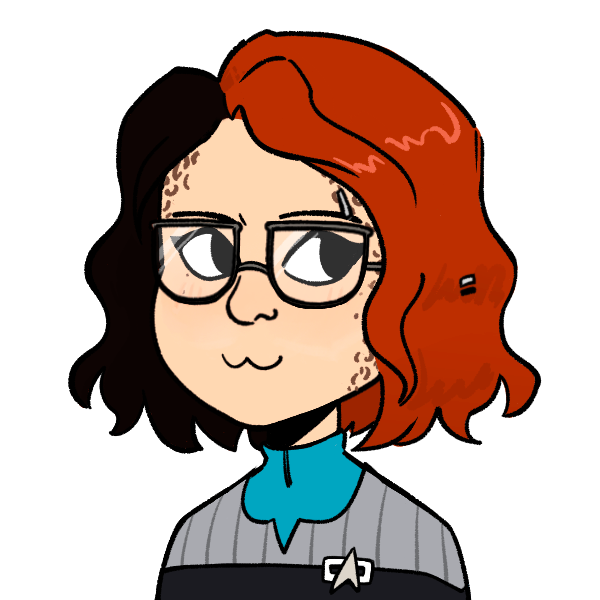Hey there,
I have finally been reading some of the Treklit that I was gifted some time ago, and I really loved them! The only problem is that I seem to be missing a lot of context.
I read Revelation and Dust, apparently the first novel in the The Fall miniseries, and it is making references to the Typhon Pact, something that to my knowledge does not appear in the shows and that was entirely unknown to me. There’s characters and events that are set up to apparently be familiar to the reader that I never heard of. The original DS9 is gone and they built a second version? I mean, that’s really cool, but how did all that happen?
I thought it’d be as straightforward as reading the aptly named Typhon Pact series, but according to Memory Alpha/Beta, that depends on canon and characters from Star Trek: Titan, and also the Destiny duology, and THOSE each depend on like dozens of other books!
Is there a recommended reading order to get up to speed on all of these events post-TV shows? I watched all good shows (e. g. including ENT and no further), and I feel like I am missing a lot of context established in the novels. I would at least really like to understand what led up to The Fall, because it seems to be super intriguing. Who is President Bacco?


I mean, the easiest way would be to read the novels by publication date… I don’t think there’s a short cut around that.
That said, having full context is… not always worthwhile. Sometimes just knowing that something happened in the past is more enjoyable than reading it in practice.
Yeah, I assumed so too, but I don’t know which novels are particularly relevant to the continuity I am actually interested in. Continuity and canon are very important for me since I hold the Trek universe dear to my heart and it is “real” to me to an extent - so obvious continuity errors are jarring and dejecting. There’s hundreds of TOS novels for example that don’t have any bearing on the DS9 relaunch series.
Which ones do I read by publication date? Are the numbered Pocket Books TNG novels relevant or not? The TNG relaunch? Titan?
In addition to the STLV group guide, Inhave found the flowchart created and maintained by the Trek Collective super helpful.
Here’s a screenshot of the current version to give you a sense of it. Suggest bookmarking the link embedded above.
that diagram is amazing, needs to be updated for Coda tho - which would put lines everywhere…
I’m not sure that they would want to give that much of a spoiler for Coda, or may be like many of us and decide that we’d rather pretend it didn’t exist.
I think Mack, Swallow and Ward are super writers, and understand why they thought Coda was needed, but it’s brutal.
I enjoyed Coda, but if there was a time to take a hatchet to characters and storylines, that was the time. I understand why they did what they did.
The numbered books tend to only have anything resembling continuity if the same author is involved. Peter David and John Vornholt come immediately to mind as ones to do that.
A Stitch in Time (By Garak’s actor) also gets referenced, but that book is an extra special case in the franchise.
Outside of the authors referencing their own work, sometimes New Frontier gets referenced: mostly in the form of Zak Kebron (The BEST character to ever happen to Trek) being Worf’s old academy roommate, or in the form of a major disaster hitting the entire quadrant and you get little cuts to various ships…
But never anything of substance.
@Wooster @LtLiana There’s also the interesting examples of John M Ford’s Klingons and Diane Duane’s Romulans - both of those authors’ works became touchstones for others - until TNG sort of swept away the Klinzhai and Rihansuu
But every single The Fall novel is written by someone else. Characters like Blackmer or President Bacco are important in the books I read even though they originate in completely different novels. It seems to me like they are all vastly interconnected.
The fall was published after Nemesis, and the rules on novels were changed from being self contained to interconnected, and they abandoned the numbered novel system.
Instead of rare bursts of continuity, you get random bursts of discontinuity, as the authors have different opinions on how to portray shared OCs, or takes on an event or its significance.